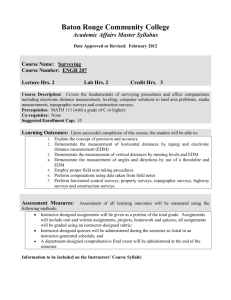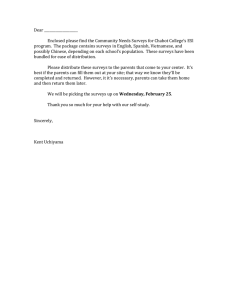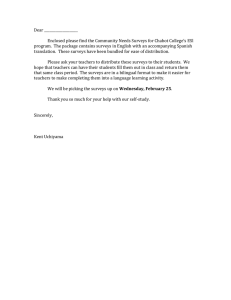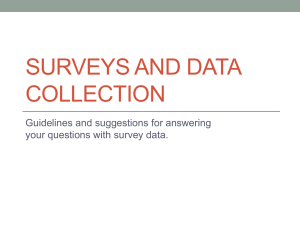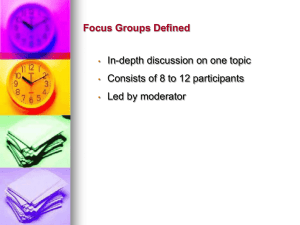Baton Rouge Community College Academic Affairs Master Syllabus
advertisement
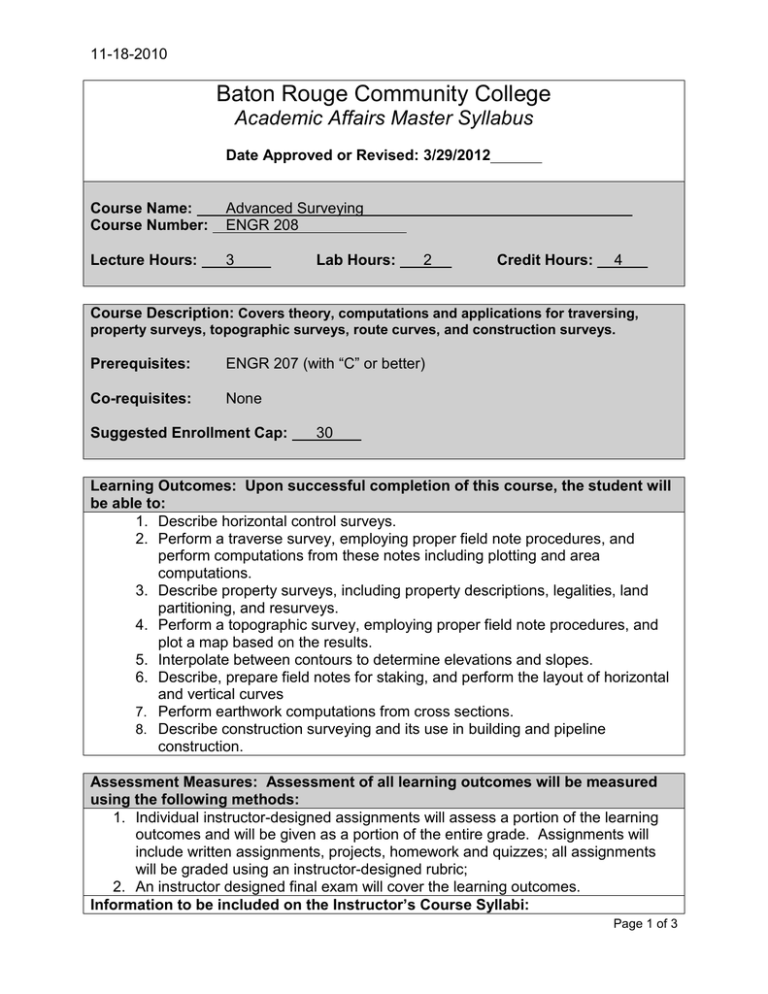
11-18-2010 Baton Rouge Community College Academic Affairs Master Syllabus Date Approved or Revised: 3/29/2012 Course Name: Course Number: Advanced Surveying ENGR 208 Lecture Hours: 3 Lab Hours: __2 Credit Hours: __4___ Course Description: Covers theory, computations and applications for traversing, property surveys, topographic surveys, route curves, and construction surveys. Prerequisites: ENGR 207 (with “C” or better) Co-requisites: None Suggested Enrollment Cap: 30 Learning Outcomes: Upon successful completion of this course, the student will be able to: 1. Describe horizontal control surveys. 2. Perform a traverse survey, employing proper field note procedures, and perform computations from these notes including plotting and area computations. 3. Describe property surveys, including property descriptions, legalities, land partitioning, and resurveys. 4. Perform a topographic survey, employing proper field note procedures, and plot a map based on the results. 5. Interpolate between contours to determine elevations and slopes. 6. Describe, prepare field notes for staking, and perform the layout of horizontal and vertical curves 7. Perform earthwork computations from cross sections. 8. Describe construction surveying and its use in building and pipeline construction. Assessment Measures: Assessment of all learning outcomes will be measured using the following methods: 1. Individual instructor-designed assignments will assess a portion of the learning outcomes and will be given as a portion of the entire grade. Assignments will include written assignments, projects, homework and quizzes; all assignments will be graded using an instructor-designed rubric; 2. An instructor designed final exam will cover the learning outcomes. Information to be included on the Instructor’s Course Syllabi: Page 1 of 3 11-18-2010 Disability Statement: Baton Rouge Community College seeks to meet the needs of its students in many ways. See the Office of Disability Services to receive suggestions for disability statements that should be included in each syllabus. Grading: The College grading policy should be included in the course syllabus. Any special practices should also go here. This should include the instructor’s and/or the department’s policy for make-up work. For example in a speech course, “Speeches not given on due date will receive no grade higher than a sixty” or “Make-up work will not be accepted after the last day of class.” Attendance Policy: Include the overall attendance policy of the college. Instructors may want to add additional information in individual syllabi to meet the needs of their courses. General Policies: Instructors’ policy on the use of things such as beepers and cell phones and/or hand held programmable calculators should be covered in this section. Cheating and Plagiarism: This must be included in all syllabi and should include the penalties for incidents in a given class. Students should have a clear idea of what constitutes cheating in a given course. Safety Concerns: In some programs this may be a major issue. For example, “No student will be allowed in the safety lab without safety glasses.” General statements such as, “Items that may be harmful to one’s self or others should not be brought to class.” Library/ Learning Resources: Since the development of the total person is part of our mission, assignments in the library and/or the Learning Resources Center should be included to assist students in enhancing skills and in using resources. Students should be encouraged to use the library for reading enjoyment as part of lifelong learning. Expanded Course Outline: 1. Horizontal Control Surveys a. Traverses b. Traverse Closure and Area Computations 2. Property Surveys a. Property Descriptions b. Legal Aspects c. Land Subdivisions d. Resurveys 3. Topographic Surveys and Maps a. Plotting a Traverse Page 2 of 3 11-18-2010 b. Contour Lines c. Procedures 4. Highway Curves and Earthwork a. Route Surveys b. Horizontal Curves c. Compound and Reverse Curves d. Vertical Curves e. Earthwork Computations 5. Construction Surveys a. Establishing Line b. Establishing Grade c. Slope Staking d. Building and Pipeline Stakeout Page 3 of 3
